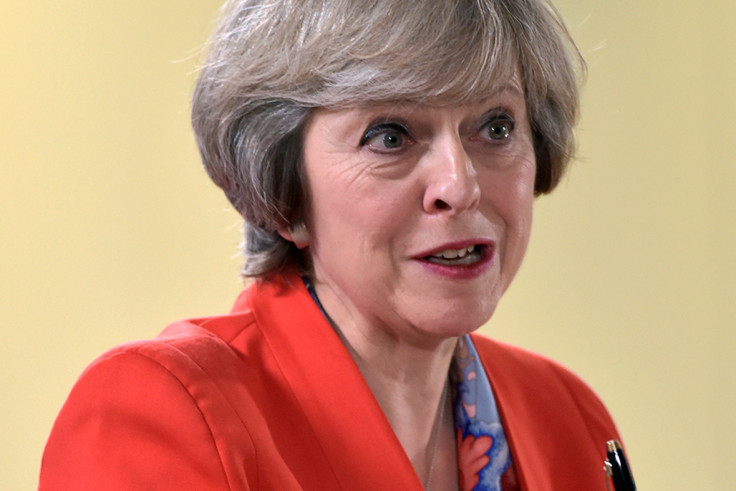German and British leaders condemn PM Theresa May's Brexit fear remarks
German leader says, 'Theresa May is currently arguing against her own convictions [on Brexit].'
Prime Minister Theresa May has been criticised by British and German politicians for the speech she made to banking firm Goldman Sachs a month ahead of the referendum vote on 23 June. Following Labour leader Jeremy Corbyn, other national leaders have also accused her of failing to handle the situation properly.
While addressing Goldman Sachs' event as home secretary, May had expressed fears that companies investing in the UK for being a part of the European Union might withdraw if the country left the bloc, according to the leaked audio of her speech. She was outlining the economic challenges that Britain could face if it opted out of the EU.
On Wednesday (26 October), Corbyn criticised the prime minister for not revealing a concrete plan on Brexit deal. However, May retorted and said that she will deliver "the best possible" trade deal for the UK.
Former Labour leader Ed Miliband, who is the leading member of the Open Britain campaign group, said May's Brexit fears "demonstrated that the prime minister was just as worried privately as the rest of us are publicly about the economic impact of the hard, destructive Brexit her government seems set on".
He urged the PM to release the internal government analysis about the dangers of Brexit to the economy.
"If private warnings are to be matched by proper public debate, it is essential that the government is not allowed to hoard vital analysis of the impact on our economy of leaving the single market. This work is being done in government and it must now be published," The Guardian quoted him as saying.
Lib Dem leader Tim Farron echoed similar views, saying May "lacked the political courage to warn the public as she did a bunch of bankers in private".

Meanwhile, Germany also joined in the criticism and said the British prime minister failed to demonstrate leadership on the issue. Jürgen Hardt, foreign policy spokesman of Angela Merkel's Christian Democratic Union said: "It is the prime minister's first and foremost duty to prevent her country from any harm. Of course, she is now confronted with a huge dilemma, because she simply cannot fulfil the Brexiters' expectations: leaving the EU and being able to lead the country to economic prosperity at the same time has always been an illusion."
A similar view was echoed by deputy chairman of Germany's Social Democrats, Axel Schäfer, who said: "The Guardian's coverage shows that Theresa May is currently arguing against her own convictions.... Leaving the EU is going to be neither a political or economic success: Theresa May recognised this as recently as a month before the referendum. Why she didn't show a similar engagement for the remain campaign in public remains a mystery. That's not how you show responsibility and leadership in politics".
Nonetheless, David Jones, a minister in the Brexit department, defended May's comments amid the escalating controversy and told a select committee hearing that the referendum was over and so were the "various positions" adopted by different political campaigns.
"The fact is the government is now determined to deliver British withdrawal and we have the fullest possible support from all elements of the civil service in achieving that," he said.
May's official spokeswoman also tried to play down the controversy and said: "The PM made a speech at the end of April talking about the risks [of Brexit] and also the opportunities and that we can be a successful country both inside and outside the EU. The British people made the decision we will be outside the EU and the PM is now focused on delivering that and making a success of it.
"She's been clear and talked about that position she took in the campaign. But this wasn't the decision of one person, it was put to the British people, they made a decision, we have to focus on how to make it work."
© Copyright IBTimes 2025. All rights reserved.





















